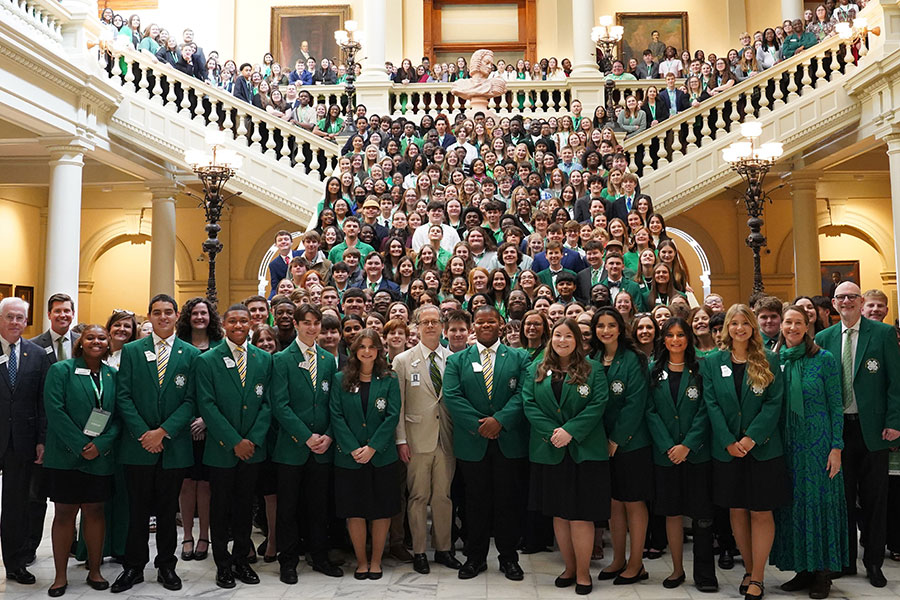University of Georgia agricultural scientists are making history this week. They are the first academic delegation to visit North Korea since the country closed its doors during the Korean War.
A delegation from UGA's College of Agricultural and Environmental Sciences is visiting North Korea on a four-day trip that ends Oct. 30. The group includes Gale Buchanan, UGA CAES dean and director; Ed Kanemasu, coordinator of the college's International Programs; Han Park, director of UGA's Center for the Study of Global Issues; poultry scientist Nick Dale; and horticulturists Stanley Kays and S.K. Hahn;.
The group is being hosted by the Asia-Pacific Peace Committee, which serves as intermediaries between North Korea and the Western world.
"This trip is a reciprocal visit from a meeting we had with a North Korean agricultural delegation a couple of years ago," Buchanan said. "During that first visit, they invited us to come to North Korea. It's taken some time to plan, but this will be an opportunity for us to visit on their turf."
Famine, Drought and Flooding
North Korea's "turf" is in turmoil now as the country deals with wide-spread famine, drought and flooding. Buchanan hopes the university delegation can eventually work with agricultural scientists in North Korea to help solve some of these problems.
"Agriculture provides the basis for any society because you've got to feed people before you can do anything," he said. "On this trip, we are taking some of our scientists who have the best knowledge in these areas."
Buchanan's team of scientists plans to talk with the North Korean delegation about areas of mutual interest.
"We put together our delegation based on the kinds of things they seemed to be most interested in when they came to the Georgia," Buchanan said.
Helping North Korea succeed could be beneficial to producers in Georgia and the United States, Buchanan said.
Trading Goods and People
"Another side of this visit is we would like to see that country, as well as all countries, prosper, because then they become traders," he said. "The United States has things we'd like to sell, barter and trade. It's a two-way street."
Kanemasu hopes this trip will open doors to an exchange program for scientists.
"We hope to develop an agreement in which there would be an exchange of faculty between our college and the Academy of Agricultural Sciences in North Korea," he said. "I think the time is also right for us to develop relationships. We have a lot of information and germplasm, and other countries do as well. It's best for everyone that we open up interactions between our countries."
The UGA delegation won't be the only Americans in North Korea this week.
America's Leaders Visiting Too
"Madeleine Albright (Secretary of State) will be there the same time we are, and that shows exchange at very high levels; the highest levels we have ever seen," Kanemasu said." It would not surprise me if President Clinton goes to North Korea before his term ends, as a final cap on the development of these relationships."
While in North Korea, the UGA delegation plans to visit several universities as well as agricultural sites and production areas.
"Candidly, we don't have an agenda," Kanemasu said. "It is a closed society and we must realize that we are their guests, but we want to accomplish as much as possible, too. Face-to-face meetings are necessary to gain confidence and provide a basis for developing further relationships."
Buchanan is hopeful the UGA visit will be the first of many and the beginning of a mutually beneficial partnership.
"This first trip is more to explore than anything else," Buchanan said. "But if things continue to thaw, I can see more definitive delegations in the future. But for now we've got to start somewhere, and that's what we're doing."
(Pete Konenkamp, UGA University Communications, contributed to this article.)






